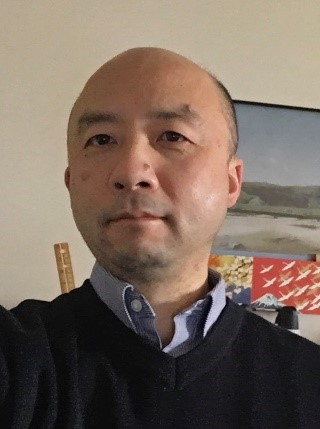Meet EPA Chemist Tao Li, Ph.D.

What research are you working on right now?
I am working on developing a biosensor to for field survey of arsenic pollution in groundwater. Arsenic pollution has been a global threat to human health and sustainable economic development for hundreds of years. Since the 19th century, millions of tons of arsenic have been generated through industrial activities such as mining, manufacturing, and fossil fuel use. These activities left sites with anthropogenic arsenic contamination throughout the world. In the U.S., mining areas with arsenic pollution issues have been designated as Superfund sites. A field sensor will help to characterize and manage the pollution sites.
Tell us about your background.
I got a BS in medicinal chemistry and an MS in microbiology in China. In 1998, I received a Ph.D. in medicinal chemistry in University of Iowa.
When did you first know you wanted to be a scientist?
When I was in high school, I started to read science history. I enjoyed the objectivity, precision, and accuracy of scientific work. The adventurous aspect of scientific research was also fascinating.
What do you like most about your research?
Chemistry research involves a lot of experimental work. I enjoy working in the lab, in which one can use imagination and creativity to make things happen.
How does your science matter?
My research at EPA is always related to sustainability. We live in a world with finite resource. The best thing we can pass on to the future generations is a world of expanded potential.
If you weren’t a scientist, what would you be doing?
A teacher. I am fortunate to have had great teachers when I studied in school. I think they are very important.
What advice would you give a student interested in a career in science?
The most important mission of science is to serve humanity.
If you can have any superpower, what would you choose?
Stretching time fast and slow, so that we can do things properly.
What do you think the coolest scientific discovery was and why?
There are too many great discoveries to be named. Each opened a door to great potential. One example is DNA as the hereditary material. It helped us to understand life in a fundamental way and apply biotechnology to improve human condition.
If you could have dinner with any scientist, past or present, who would you choose and what would you talk about?
I would say Isaac Newton or Frederick Sanger because they both speak English. I want to learn more about their lives.
You are stranded on a desert island; how do you use science to survive?
We need to figure out a way to get fresh water. Food is secondary because there is fish in the ocean.
What do you think is our biggest scientific challenge in the next 20/50/100 years?
The biggest challenge is helping future generations prioritize the long-term interest of humanity – we need scientific method and good evidence.
Editor's Note: The opinions expressed herein are those of the researcher alone. EPA does not endorse the opinions or positions expressed.
